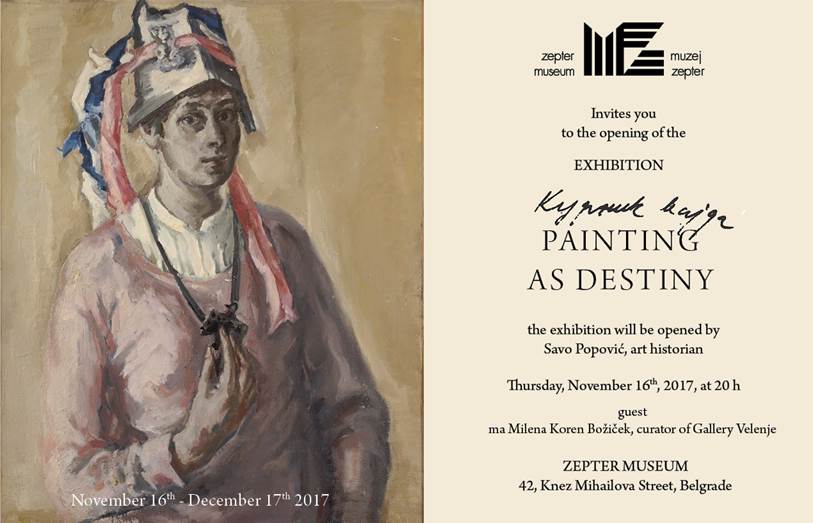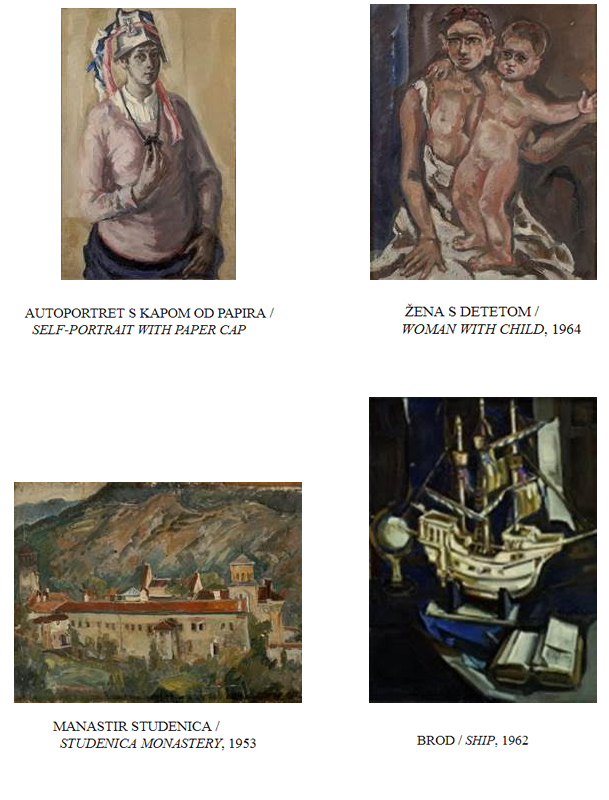 Majda Kurnik (1920-1967) has merged two cultural institutions (the Velenje Festival – the Velenje Gallery and the ZEPTER MUSEUM), two milieus (Velenje and Belgrade). As a guest, the ZEPTER MUSEUM was welcomed in Velenje in a friendly and businesslike way and in the same manner we welcome the Velenje Gallery. The exhibition in Velenje was opened on October 5th and it will stay open till December 2nd 2017, the exhibition opens in Belgrade on November 16th 2017.
Majda Kurnik (1920-1967) has merged two cultural institutions (the Velenje Festival – the Velenje Gallery and the ZEPTER MUSEUM), two milieus (Velenje and Belgrade). As a guest, the ZEPTER MUSEUM was welcomed in Velenje in a friendly and businesslike way and in the same manner we welcome the Velenje Gallery. The exhibition in Velenje was opened on October 5th and it will stay open till December 2nd 2017, the exhibition opens in Belgrade on November 16th 2017.
Fifty years have passed since the death of Majda Kurnik, the painter. Slovenia did not know well this exceptional paintress and intellectual, who had many artistic talents – for music, acting and painting. She chose painting. One can conclude on the basis of the facts from her life and the preserved documents, now kept in the Majda Kurnik Collection of Gallery Velenje, that her life, spent far from her family, was divided. Her family roots were deeply set in Šaleška and Gornja Savinjska valley in Slovenia, while she began her artistic development in the School of Painting run by Mladen Josić. Later she enrolled the Academy of Fine Arts in Belgrade (today, the Faculty of Fine Arts).
Majda Kurnik was a Slovene by birth, but a Serbian paintress by formation, sensitive, strong, temperamental, modest and courageous and today – five decades after her death – she is almost forgotten. However, her works evidently has a safe place in the Serbian history of art, although the general public cannot see her paintings (except two paintings in the collection of the ZEPTER MUSEUM). Her name is well-known to the older generation (and they easily remember her) but it has remained completely unknown to the young ones, except if they find a reproduction somewhere or remember to „open“ Wikipedia.
The artworks by this specific artist have not yet been sufficiently researched and therefore not evaluated correctly. The works that have remained behind show an effort to collate her visions of a full, liberated life with the dull echoes of the moments spent in illness, as Stojan Ćelić (catalogue of the posthumous exhibition „Majda Kurnik“ 1968 in the Art Pavilion Cvijeta Zuzorić) put forward in his most touching but also most impartial text about her creative activity of less than twenty years.
We hope that these exhibitions (Velenje, Belgrade) will encourage young people to finally explore in detail the work of Majda Kurnik which should obtain final valorization that it deserves.


